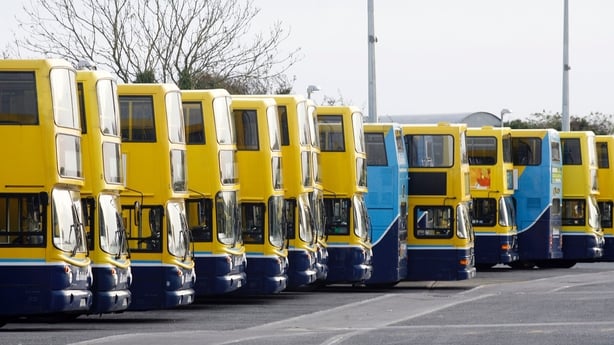The Dublin City Taskforce has recommended that 1,000 extra gardaí be deployed to ensure greater security in the city centre.
The group, chaired by An Post Chief Executive David McRedmond, also suggested that a congestion charge or tourist tax could be used to raise some of the estimated €750 million to €1 billion in capital funding required to implement its recommendations.
The taskforce was established last May to come up with a plan revitalise the capital in the wake of the November 2023 riots and the Covid-19 pandemic.
A report – due to be published this morning – outlines ten suggestions to improve the security and condition of the capital over the coming years.
On security, the taskforce recommended the deployment of 1,000 extra gardaí over the next three years.
It said that Dublin falls short of the European average of police to residents in the city, with one garda per 373 inhabitants compared to the EU average of one police officer per 293 inhabitants.
It also said there are a number of gardaí involved in non-policing work in the city centre that could be carried out by other agencies.
The report suggested an increase in private security on public transport and a broadening of their powers.
It recommended a community warden scheme and the relocation of the garda station on O’Connell Street to the GPO.
On the issue of services for vulnerable people, the taskforce said they should be more targeted and better located.
It suggested a more equitable spread of emergency accommodation and processing services around the Greater Dublin Area.
Mobile supervised drug consumption services in the city centre are among the reccommedations to deal with drug use in the capital.
To improve housing, it suggested that derelict sites be converted into high-density residential units with provision for essential workers to tackle the issues that businesses face in recruiting staff.
It also suggested the regeneration of all city centre social housing within five years to deal with the issue of deprivation.
Revitalising O’Connell Street and redeveloping the GPO have also been proposed.
The taskforce recommended that the GPO has a greater public function and that a decision on the future of the former An Post headquarters be made next year.
The group suggested accelerating the next phases of the Dublin City Transport Plan, doubling 24-hour bus services and improving late night taxi availability by increasing fares.

It also proposed the creation of more reasons for people to visit the capital, including increasing cultural spaces, extending the opening hours of cultural venues, funding the nighttime economy and a more coordinated approach to event planning to ensure it is more evenly spread over the year.
A dedicated waste management plan for the city has also been recommended, including the ending of bagged waste and a single waste management provider for the city centre.
It also said the return of waste management to the local authority should be considered in the long term.
However, it said this should be on a phased basis as the immediate return to such a system is not feasible and may be subject to legal challenge.
A marketing strategy for the capital is also recommended as is a public vote on a directly-elected mayor for the capital.
The taskforce said that its proposals are not costed but would require an estimated €750m-€1bn euro in capital funding and €100m to €150m in annual expenditure.
It said that a tourist tax, a congestion charge, or increased vacant property levies could help raise the funding required along with a number of other mechanisms.
